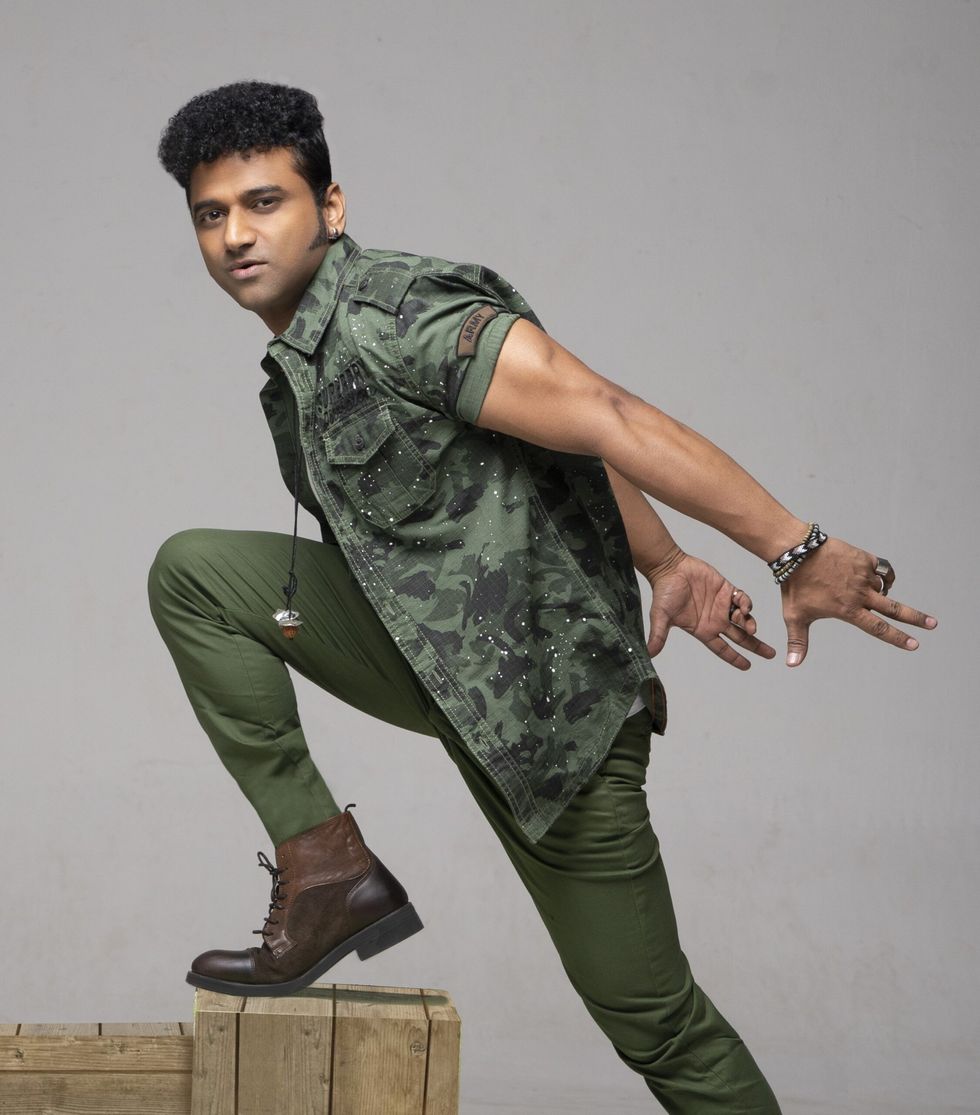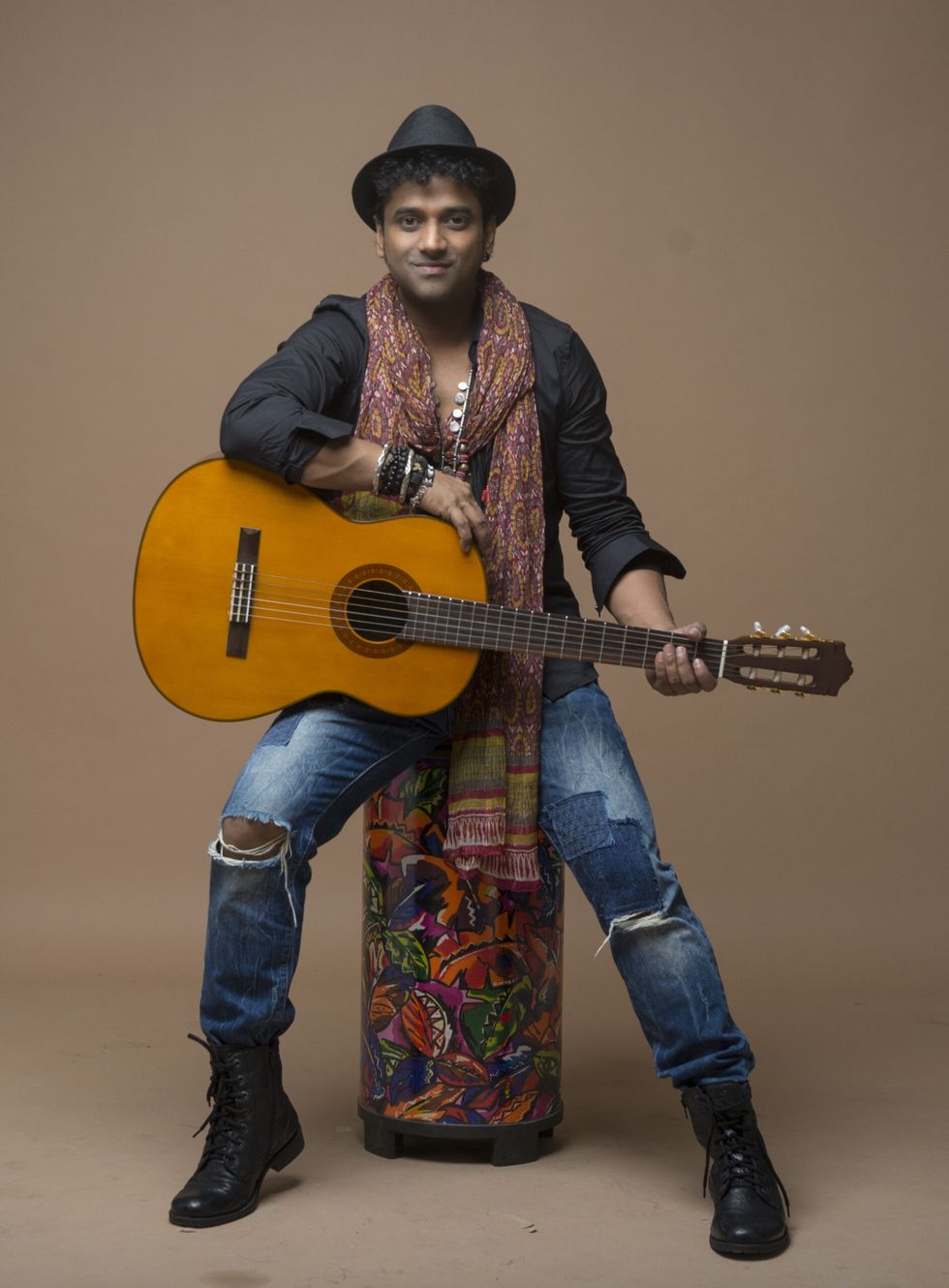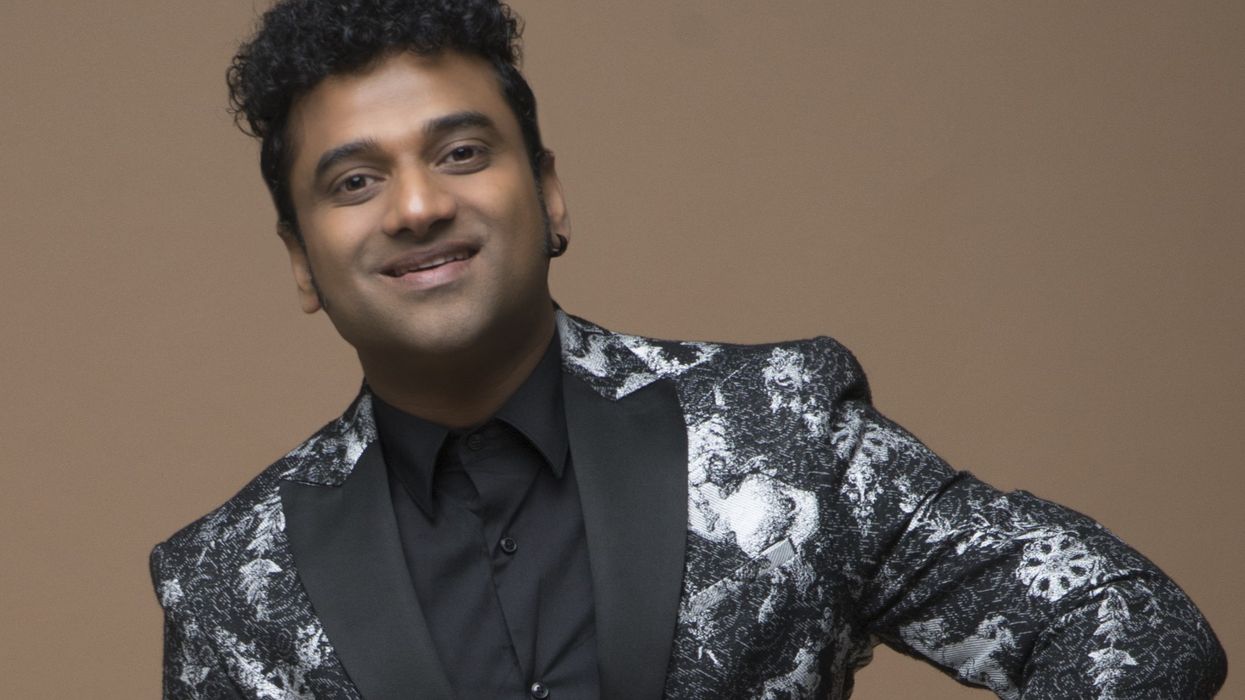DEVI SRI PRASAD made history in London with back-to-back arena concerts in Telugu and Tamil over an action-packed weekend in January,.
The two blockbuster shows confirmed that the musician is one of India’s most popular and talented artists. It added to the singer, songwriter and composer’s impressive achievements, which include super-hit film soundtracks, such as the global blockbuster, Pushpa: The Rise. His many hit songs, multiple awards and magical performances have propelled him to become a driving force in a pan-India movement that has elevated various local film industries to global prominence.
Despite his incredible success, the superstar, affectionately known as DSP, has remained grounded and was happy to speak to Eastern Eye about his remarkable journey. During the conversation, he touched upon his unforgettable UK shows, the success of south Indian cinema, future plans in music and why he never feels any pressure.
What first connected you to music?
I was born to parents who loved music. My dad was a film writer and director. He used to play the guitar, compose tunes and write lyrics for fun, not professionally. He was a fantastic singer. My mom cooked while listening to music. My grandmother was an amazing classical music singer. So, I was lucky to be born into a family that loved music. Growing up in such an atmosphere, I naturally absorbed a love for music into my very being.
What were your musical influences, growing up?
The first artist I came to know of was, obviously, Michael Jackson. I saw his posters and videos everywhere, even before I knew anything about his music. I loved his music, dance and videos. Growing up in Chennai, I had this great blessing of totally living with the music of Ilaiyaraaja sir. The biggest blessing in my life was meeting my guru, the one and only maestro, U Srinivas ji. I learned whatever I know from him. They became my icons and role models. Because of these three people, my sense of rhythm and melody is very powerful. They shaped me musically into what I am today. I will be forever grateful to them.
Which of your hit soundtracks is closest to your heart?
This is a very tough question. I’m a person who enjoys the process of making music, right from scratch to the finished product, without expecting any results. Sometimes, I make music even when there is no necessity because it just happens in my head. The flow of music is a blessing. So, I really can’t say which soundtrack is my favourite. I love every track equally. Only when I truly, genuinely love it, do I give it to my directors.

Which of your songs remain special?
A few songs have really defined my career. One of those is Nuvvu Nuvvu from the movie Khadgam, which I did at the beginning of my career. It became one of the biggest romantic anthems and remains very close to my heart. There are songs from many other movies, like Srivalli from Pushpa: The Rise and Oo Antava, which redefined item songs. I don’t classify music.I respect and love every song equally. That’s the only way a composer can be true to creating any piece of music.
Does your massive success tend to put pressure on you?
When you truly love music, it gets rid of pressure, stress and tension. Music has that healing power. More than seeing myself as a music composer, I always feel proud to say that I’m a music lover. I can fall in love with music, by whomever it is composed.
Possessing the ability to love music is what we all need. I love music and make it without thinking about the outcome. So, there is no pressure, whatsoever.
I truly believe that we can never create anything that’s genuinely good or 100 per cent from the heart under pressure. I enjoy the process and am just an istrument thr ough which some music is being created.
What was the experience of performing two big back-to-back concerts in the UK like?
I’m so glad that we performed in London. It had been on the cards for a long time. A Telugu show followed by a Tamil concert. I think this is the first time that the same Indian artist has performed in two languages on two consecutive days. I thank Rainbow Skye for organising these concerts. I would like to give a wholehearted thanks to London for the love that was showered on us at both shows.
Performing shows in different languages to massive crowds across two days must have been a huge challenge…
We had to rehearse so many songs. Apart from the other singers, for me alone, there were around 25 songs in each show. I had to remember the lyrics, dance moves, outfit changes and everything for about 50 songs in those two days. We put in a massive effort.
I had an amazing experience performing in London to a Telugu and then a Tamil crowd. The people were singing along with us and, thankfully, turned both shows into blockbusters. I will always remember that experience. My thanks to the technical team, choreographers, dancers and organisers.
How do you feel being in front of a live audience?
I love being in front of a live audience. I have always felt that I was born for the stage. That’s what shaped me into what I am. It means so much when people say they love my music, relate to it and dance along with me. Live shows enable me to judge what people would love when I’m making music for the movies.
Tell us about the creative process connected to performing at live shows.
When I start making music, I always imagine that I’m performing those songs in front of the many people who attend live shows and that they are singing along. I can actually feel their vibe. And that vibe has never gone wrong. That is how I decide, whenever I create a song. I just step back and listen to it, like the audience. And decide if that song can live up to its purpose.
What do you mean by purpose?
Every song serves a purpose – it can make you dance, feel happy, sad, excited, or whatever. If that song can make me feel the emotion it’s supposed to, then I know it’s going to work. So, I always love performing in front of a live audience, which is why I make time for concerts. I don’t do it for money or fame, but to feel the pleasure of being in front of amazing audiences, singing and dancing. Their spontaneous response fuels my passion. I thank the audience for teaching me what is best.
You have achieved a lot. But what is your greatest unfulfilled musical ambition?
First, there is no definitive measurement of achievement. The best part lies in having some aspirations unfulfilled, as they ignite a sense of craving, hunger, curiosity and exploration. So, we can never say that this is what I wanted to do and that I have already achieved it. The greatest accomplishments often transcend our individual lifetimes.
So, the question becomes, what more can we contribute? The idea is to embrace our passions and continuously seek innovation. Only then can we give them something fresh and exciting that they haven’t experienced before.
The audience is clearly important to you…
I think keeping your audience happy with your work is the greatest achievement. When you make them happy, it makes you happy. So, the idea is to create something that makes everyone happy and will be remembered for a long time.
The artist will definitely not exist forever. But the art should exist forever. So, we must strive to do something that is remembered and celebrated forever.
Is there something in music you want to do?
There is a lot more music I want to compose. I want to learn more, compose better and try out different styles. I want to explore the world with different kinds of music and offer audiences a rich tapestry of sounds and experiences.
Who would you love to collaborate with?
I always wanted to collaborate with my guru, the one and only, U Srinivas. I wanted him to render something I composed on his mandolin. But I never had the courage to compose something that would match his great talent.
I thought I should practise, learn more and then compose something really brilliant. And one day, I would ask him to play what I had composed. But, unfortunately, that did not happen because he left us too soon.

You kind of got that chance to collaborate with the late maestro after he passed away…
Maybe it was a manifestation or a dream I had, but I like to think that my guru, in his wisdom, left behind a piece he composed on his mandolin, without any backing tracks, knowing my intentions.
When his younger brother, U Rajesh, who is dear to me as well, shared this piece with me, I felt it was a blessing from my guru. I approached Rajesh and asked if I could orchestrate it as a tribute to our guru and he graciously agreed. Keeping his mandolin track intact, I orchestrated the entire piece. This composition holds a special place in my heart as a cherished blessing.
How much does it mean to you that south Indian cinema and music have become globally popular?
Of course, it definitely means the world to all of us. All Indians are now celebrating south Indian movies. It has now become Indian cinema. No more north or south Indian cinema, because people are wholeheartedly appreciating all the films. That’s a great thing. It has given a lot of people a chance to cross boundaries and exhibit their work.
You have certainly crossed that divide with hit music in different languages.
From the beginning, my aspiration was to transcend boundaries with my music and resonate with diverse audiences worldwide.
Fortunately, this vision materialised as industries converged, resulting in pan-Indian films that reached audiences across languages. Pushpa... epitomised this boundary-crossing trend, with its music achieving global blockbuster status. Witnessing Indian cinema and music gain global traction brings me immense satisfaction and pride.
What is the plan going forward?
The idea is to make more and better music. This year promises to be thrilling, with numerous Tamil, Telugu and Hindi film projects underway. As films adopt a pan-Indian approach, reaching audiences in multiple languages, the music follows suit. I’ll be expanding my concert performances globally.
Whenever I do a concert, I come back with the energy of 1,000 elephants and ideas for a million songs, so that really inspires me and keeps me going.
Additionally, I’ve embarked on creating stunning music videos and am exploring major collaborations. A significant ambition for the future is to compose music for a Broadway or London West End production.
With the blessings of my guru, U Srinivas, parents, Ilaiyaraaja and Michael Jackson, I’m looking forward to making all this come true.




